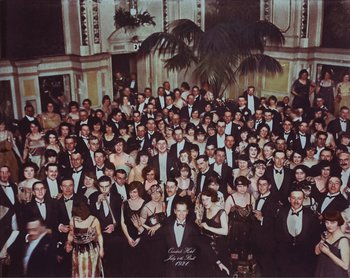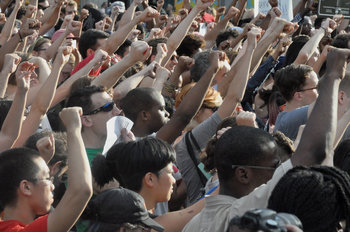|
| |
A defence mechanism is an unconscious operation that seeks to defend oneself from the judgement of society and one's own conscience. Freud viewed this as a strategy employed by the ego to overcome feelings of guilt, anxiety and inferiority imposed by the super-ego. These can be positive and productive ways to deal with reality. However, defence mechanisms can also be extremely problematic when taken too far. The following are the basic defense mechanisms identified by Freud and his daughter Anna Freud. Compensation | Denial | Displacement | Dissociation | Fantasy | Idealization | Identification | Intellectualisation | Introjection | Inversion | Projection | Rationalization | Reaction Formation | Regression | Repression | Somatisation | Splitting | Sublimation | Substitution | Suppression | Undoing |
CompensationCompensating for a perceived fault by excelling in some other area. For example, if you feel like a failure in your family life you may excel at your career.DenialSimply ignoring an inconvenient reality.DisplacementSubstituting an unacceptable idea or action for an acceptable one. For example, an employee who is unable to act out against their boss for fear of being fired who instead acts out by driving aggressively on their commute.Dissociation Disconnecting from physical, social and emotional realities. FantasyUsing the imagination to overcome a stress. For example, imagining becoming the CEO of your company and firing your boss.IdealizationAssigning yourself or others exaggeratedly positive qualities. For example, overcoming guilt for an action by thinking that you are wonderful in some way.IdentificationIncorporating external things into the self. For example, using your group memberships to overcome feelings of anxiety -- I work for a big company so I can do this.IntellectualisationUsing reasoning to isolate yourself from an emotional occurrence. For example, when insulted on the street -- that person is just combative and unstable that insult wasn't about me it was about them.IntrojectionAdopting the thoughts and personality traits of others. For example, adopting the bravery of a family member when faced with anxiety.InversionObject of aggressive drive or emotion is changed from another to the self.SomatisationExpressing physical medical symptoms in response to psychological or social distress. ProjectionShifting an internal feeling that is unacceptable to you such that you see it in others as oppose to yourself. For example, a person who sees others as sexist due to their own internal struggle with gender biases.RationalizationSubstituting good motives for actual motives.Reaction FormationTaking an emotion or drive that you fear and overcoming it with the exact opposite. For example, overcoming a desire for destruction by becoming extremely constructive. RegressionReverting to an earlier state of development. For example, becoming child-like (e.g. crying) when accused of wrongdoing in order to escape to a state of innocence.RepressionAvoiding thoughts, emotions and memories that are unpleasant to you. This is different from denial -- the memory may exist in an accurate state but your mind prevents its recall.SplittingThinking in extremes whereby you ignore all grey areas and middle ground. For example, us vs them whereby you group people into good and bad. This is a defense mechanism where it allows you to overcome unpleasant thoughts. For example, my parents are "us" and are therefore good people.SublimationA mature type of defense mechanism whereby you redirect a drive to do morally or socially unacceptable things into a drive to do acceptable things. Freud viewed this as the basis for civility and civilization.SubstitutionSubstituting an unacceptable or unattainable goal for an acceptable or attainable one. For example, a girl who wants to date a famous actor who dates a guy in her class. Another mature type of defense mechanism.SuppressionChoosing not to engage negative thoughts or memories. This is entirely voluntary and strategic as opposed to repression that is unconscious.UndoingTaking the opposite action of what you would like to do. For example, being overly nice to someone who you would like to smack.
Human Behavior
This is the complete list of articles we have written about human behavior.
If you enjoyed this page, please consider bookmarking Simplicable.
© 2010-2023 Simplicable. All Rights Reserved. Reproduction of materials found on this site, in any form, without explicit permission is prohibited.
View credits & copyrights or citation information for this page.
|
































